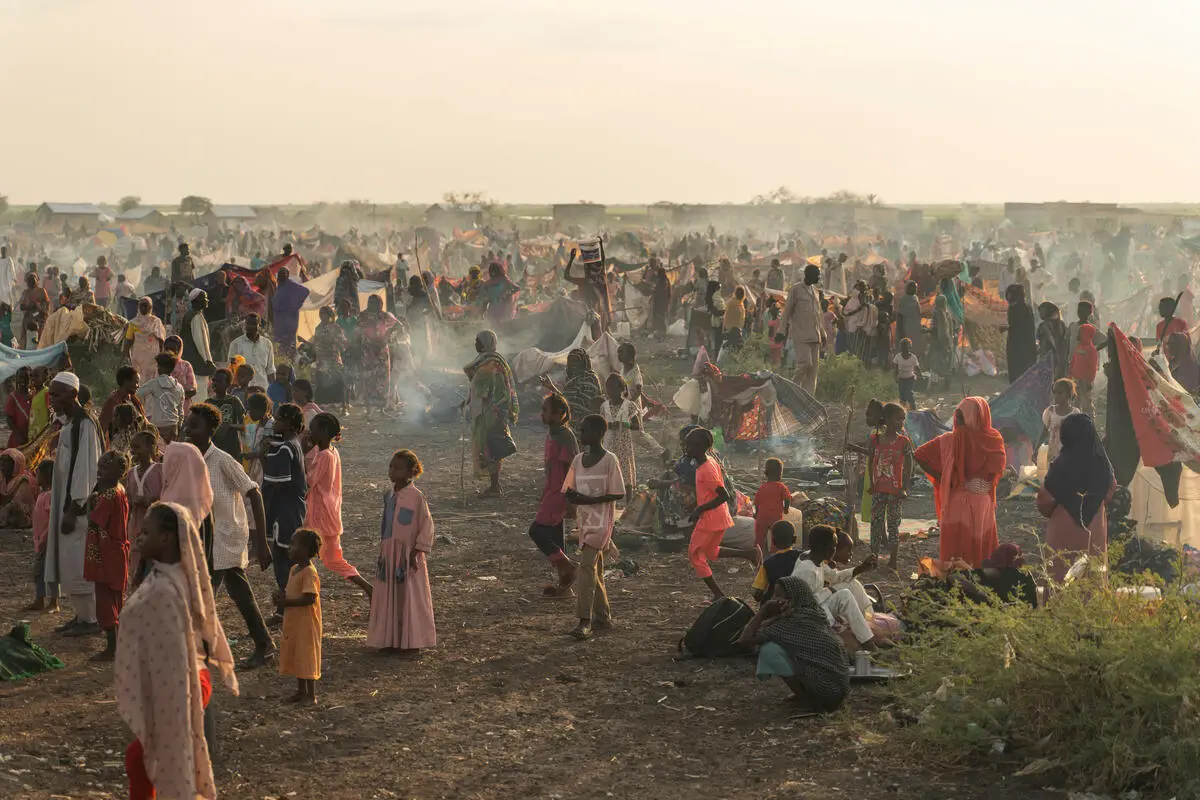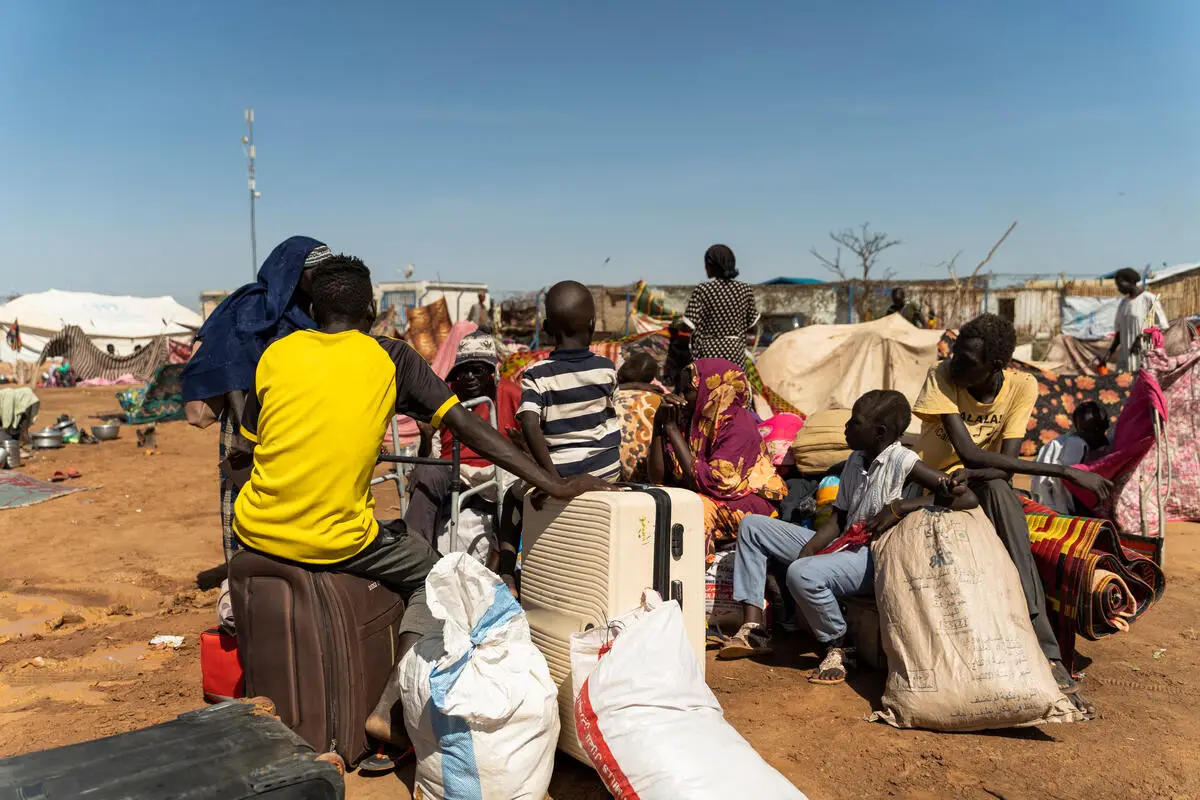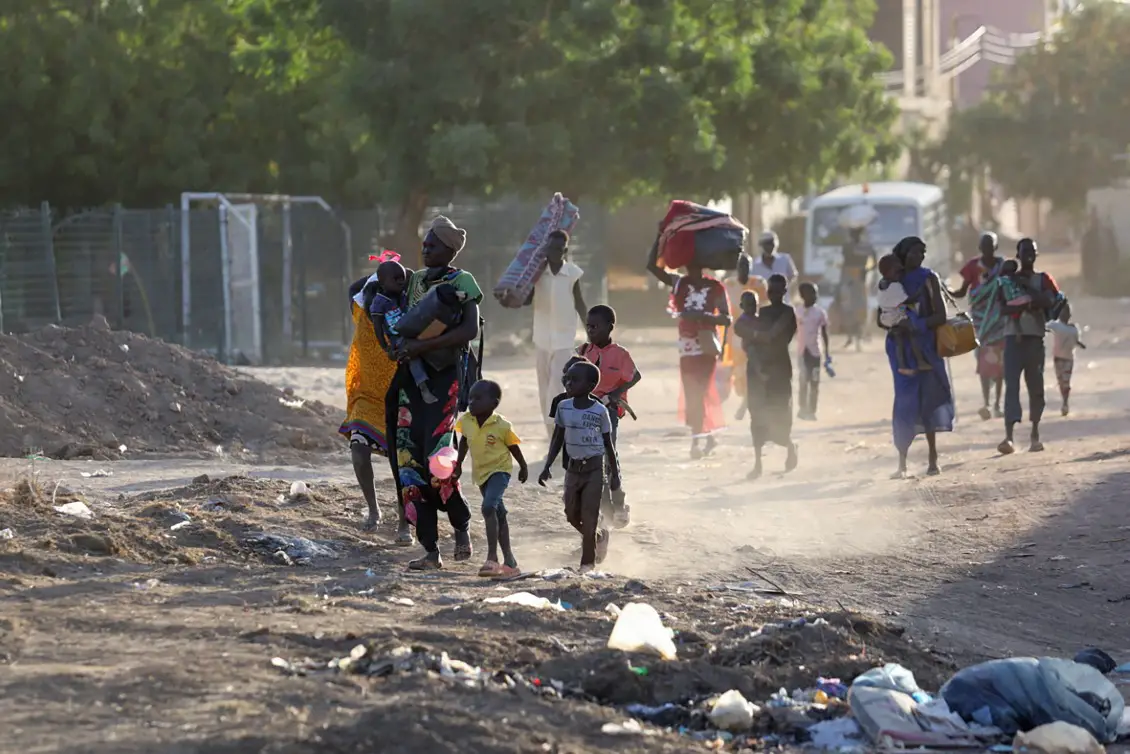As the brutal war in Sudan continues to ravage the country, a new and deadly crisis is silently unfolding alongside it. While the world’s eyes remain focused on the violence between warring factions, millions of displaced Sudanese are now caught in the grip of a public health emergency, battling life-threatening diseases like cholera. This silent killer, spurred by mass displacement, overcrowded shelters, and crumbling infrastructure, has become the country’s second war—a fight for survival against an invisible enemy.
From the muddy streets of Kassala to the makeshift camps housing thousands in Sudan’s eastern states, a health catastrophe is brewing. Hospitals and health workers are overwhelmed, attempting to control the rapid spread of infectious diseases in a system already crippled by war. With over 24,000 confirmed cholera cases and more than 680 lives lost to the disease, the situation is growing dire. And tragically, these numbers may only scratch the surface of the real scale of this health disaster.

How War Sparked a Health Crisis
Sudan has long struggled with political instability, but since the outbreak of civil war in April 2023, the country has been thrust into chaos. As rival military factions—the Sudanese Armed Forces (SAF) and the paramilitary Rapid Support Forces (RSF)—clash in brutal street battles, millions of civilians are caught in the crossfire. More than 5 million people have been displaced, forced to flee their homes in search of safety, only to be met with new and deadly threats in overcrowded camps and shelters.
The scale of displacement is staggering. Sudan, a country already grappling with poverty and underdevelopment, is now home to the world’s largest internal displacement crisis. As the conflict intensifies, entire towns and cities have emptied, pushing families into remote regions like Kassala, where cholera, malaria, and other infectious diseases have found fertile ground in the unsanitary conditions of makeshift camps.
The Kassala Teaching Hospital, located in one of Sudan’s eastern states, is at the epicenter of the cholera outbreak. The scenes here are heartbreaking. Health workers scramble to treat patients in overcrowded and under-resourced facilities, many of which lack basic medical supplies. Outside the hospital, a young woman clutches her baby at the entrance to a tented quarantine ward, desperately seeking help but fearful of the disease spreading inside. A health worker’s stern words echo the reality faced by many: “Does your baby have cholera? If not, move away.”
This is a fight for survival, and the odds are stacked against the displaced populations. The surge in cholera cases is exacerbated by the very conditions created by war. Heavy rains, dilapidated sanitation systems, and an influx of people into areas not equipped to handle such numbers have created a perfect storm for disease outbreaks. But the real tragedy is that, for those who fall ill, getting treatment is often a matter of life and death.
As one health official starkly put it, The fact that people are making it to the hospital is a small miracle in itself.
A Deadly Surge
Cholera, a waterborne disease that spreads rapidly in unsanitary conditions, is at the forefront of Sudan’s health emergency. The most recent figures are grim: the Federal Ministry of Health reported that as of late September, over 24,000 people had contracted cholera, a staggering 55% increase in just a matter of weeks. Deaths from cholera are rising just as quickly, with more than 680 reported fatalities—a 34% increase in less than three weeks.
In truth, these figures are likely conservative. Experts on the ground, from Médecins Sans Frontières (MSF) to local health officials, believe the actual toll is much higher. Underreporting, a lack of access to remote areas, and the sheer difficulty in obtaining accurate data in a country torn apart by war mean the real scale of Sudan’s cholera crisis is likely to be vastly underestimated.
The main issue in cholera is overpopulation,” explains Chiara Lodi, the country director for MSF Spain in Sudan. “The movement from one state to another impacts the health system because it cannot absorb everyone. And in the camps, they simply don’t have the space or resources to maintain basic hygiene, let alone treat everyone.
These camps—designed to be temporary safe havens—are now overcrowded breeding grounds for disease. Basic infrastructure has crumbled under the pressure of the massive influx of displaced people. Latrines overflow, clean water is scarce, and the lack of sanitation has turned already vulnerable populations into easy targets for deadly outbreaks.

Displacement Fuels the Health Crisis
The relationship between displacement and disease is a deadly one. As people flee the violence in cities like Khartoum, El Obeid, and Nyala, they arrive in supposedly safe zones, bringing with them not just their families but also a set of complex health challenges. Overcrowded conditions in makeshift camps and temporary shelters create the perfect environment for the rapid spread of cholera and other infectious diseases.
Cholera is a particular threat because it spreads quickly in unsanitary conditions, especially when clean water is scarce. As heavy rains pummel eastern Sudan, flooding roads and contaminating water supplies, the number of cholera cases continues to rise. Hospitals and medical centers are stretched thin, unable to cope with the surge in patients. Many health workers, already exhausted from months of unrelenting pressure, fear that the worst is yet to come.
In Kassala Teaching Hospital, Dr. Ali Adam, the state’s Minister of Health, tells of the immense strain on the system: “This is the first time we’ve seen an outbreak of cholera on this scale. The state’s services are under extreme pressure. Kassala’s population has almost doubled with the arrival of displaced people, and we simply don’t have the resources to cope.”
The reality is grim. While those who make it to hospitals like Kassala Teaching Hospital have a chance at survival—with rehydration therapy and basic care, cholera can often be treated successfully—thousands more remain in camps or rural areas, too sick or too far away to seek help. For them, the outcome is far more uncertain.
Voices from the Frontlines
The human cost of Sudan’s health crisis is devastating, and it extends far beyond the hospital walls. For every patient being treated, countless others are struggling to survive in the squalor of the displacement camps. Their stories paint a picture of immense suffering and resilience in the face of unimaginable adversity.
One such story is that of Rahma, a mother of four who fled the fighting in Khartoum. She now lives in a camp outside Kassala with her children, all of whom have fallen ill with cholera. “We left everything behind,” she says, her voice barely audible over the sounds of coughing and crying in the cramped tent. “There is no clean water here, no food. My children are sick, but I don’t know how to help them.”
Her story is tragically common. Across Sudan, millions of people like Rahma are trapped in a cycle of displacement, disease, and despair. For many, the war has robbed them not only of their homes and livelihoods but also of their health and dignity.

A Call for Urgent Action
While the world watches Sudan’s war from afar, the humanitarian crisis unfolding within its borders demands immediate attention. The country’s health system is on the verge of collapse, and the international community must step in to provide urgent support. This means more than just delivering medical supplies—it means addressing the root causes of the crisis, including displacement, lack of infrastructure, and bureaucratic hurdles that prevent aid from reaching those who need it most.
For aid organizations like MSF and the International Red Cross, the challenge is immense. State bureaucracy, compounded by the chaos of war, makes it difficult to move critical supplies quickly. “If we need to intervene in 24 hours, it’s almost impossible,” says Lodi. “We have to follow certain procedures, which slows down our ability to respond to outbreaks.”
The international community must do more to support Sudan’s health workers, who are on the frontlines of both the war and the fight against disease. Funding for emergency medical care must be increased, and logistical barriers to the delivery of aid need to be addressed. Without immediate intervention, the death toll from cholera and other diseases will continue to climb.
A War on Two Fronts
Sudan is now fighting a war on two fronts. One is the violent conflict between military factions, which has torn the country apart. The other is the war against disease, waged in the overcrowded camps and crumbling hospitals where millions of displaced people are struggling to survive. As the cholera outbreak continues to spiral out of control, it is clear that this is not just a health crisis—it is a humanitarian catastrophe.
The people of Sudan are resilient, but they cannot face this battle alone. The international community must step up to provide the necessary support, not only to end the war but also to stem the tide of disease that threatens to claim thousands of lives. Time is running out, and the cost of inaction will be measured in human lives.



